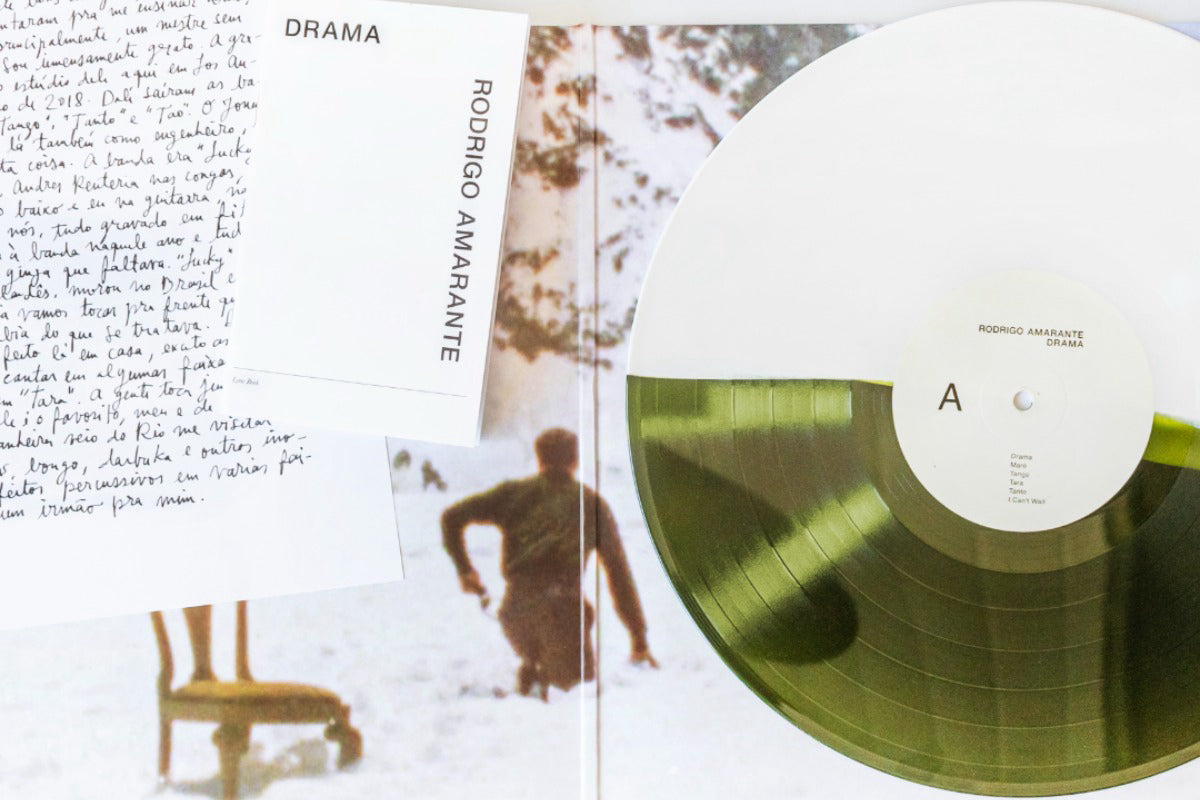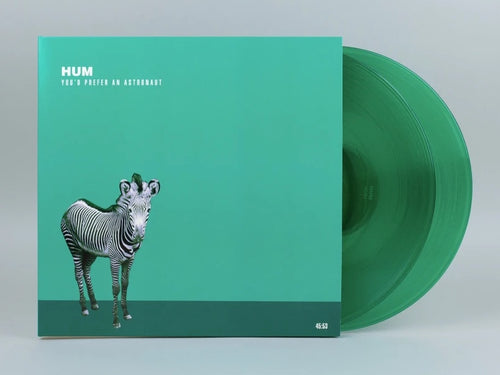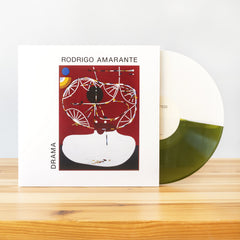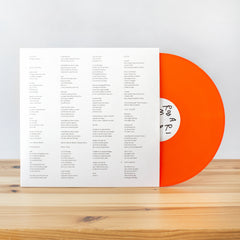
"A lush and enveloping listen, it blends gentle pop with cinematic flourishes." —Aquarium Drunkard
“His music has its own push and pull, with three-against-two rhythms and a tangle of instrumental lines — guitars, percussion, a nasal synthesizer, a horn section, some whistling — that interlock but sound like they might collide at any moment. It sounds charmingly ramshackle; it’s not.” —The New York Times
“His rich voice and inventive, genre-crossing arrangements make for music that remains as vital as ever." —The AV Club
"on Drama, his first solo record in seven years, the Rio-born and L.A.-based Amarante brings a collection of breezy, tropicalia-soaked songs sung in both Portuguese and English." —Paste
"It's hard to not be captivated by Brazilian singer-songwriter Rodrigo Amarante's limber rhythms and infectious vocal melodies. So, let yourself be.” —MTV News
Rodrigo Amarante has probably come into your orbit without you realizing it — you may have heard "Tuyo," the Brazilian multi-instrumentalist/composer's theme tune to the Netflix drama Narcos, or the Little Joy album, recorded with Fab Moretti and Binki Shapiro, you might have noted his name among the credits on songs by Gal Costa, Norah Jones and Gilberto Gil; or perhaps you saw him play live with Brazilian samba big band Orquestra Imperial, or with Rio rockers Los Hermanos; you really should have heard his debut album, Cavalo, released in 2014.
Amarante's long-awaited follow-up, Drama, introduces a whole new level to his artistry. Available today worldwide – it's purposefully caricatural, cinematic; "As biased as memory". It flows as an arch, playfully deceiving, like a tale. Order your exclusive first pressing Early Bird edition of Drama on Half Clear Olive/Half White (limited to 1500) – featured above. Also available is the newly reissued Cavalo Early Bird edition (limited to 750) on Cloudy Clear Splatter.
Born in Rio de Janeiro in 1976, Rodrigo Amarante points to two incidents in his past that fed directly into the recordings that make up Drama: a childhood illness that makes him appreciate the beauty of the second chance; and the moment when his father (with Amarante’s begrudging consent) cut off his long hair, an attempt to unburden all the drama and sensitivity from the young man’s head. “Dressing up as means to reveal, rather than dressing down, to conceal, that is Drama” says Amarante.
Drama began life at the end of 2018, with a session involving Rodrigo’s regular band - “Lucky” Paul Taylor on drums, bassist Todd Dahlhoff, Andres Renteria on congas, and Amarante on guitar. An upbeat, seemingly happy song with darker aspects hidden beneath the surface, "Maré" is based on Spanish proverb: the tide will fetch what the ebb brings. “Things that arrive in your hand by destiny, they are just as easily swept away,” explains the writer.
“Tango,” though, may be the key to the theme of the album: Rodrigo falls in love on the dance floor, the lovers sway clumsily until they adjust their balance, become familiar with the other’s steps and, at last, become one. Also dating from the 2018 sessions, “Tao” is a different beast entirely. “It’s the ridiculousness of the human condition. Suffering comes from being attached to something." “Tara,” meanwhile, feels like something Astrud Gilberto might have sung at the height of bossa nova’s global popularity.
Writing and recording continued through 2019. Some songs were pulled out from the back of drawers, more ideas came anew. “”The End,” I think I started writing that 10 years ago. Other songs went into the trash bin, but I’ll be sniffing about in there for the next record. “Sky Beneath” was a quick one because of the emotional state I was in, it was one of those." “I Can’t Wait” took on the eerie qualities of a John Barry theme, while still ruminating on the power of love. To be free is to belong.
In early 2020, with the album not quite ready, lockdown hit Los Angeles and Rodrigo found himself alone, adding overdubs – inexplicably, he’s not overly proud of his horn playing on “Eu Com Você” – and mixing the completed tracks with Noah Georgeson, though the two were never in the same room. Unsurprisingly, isolation dictated the sound of the album. “Lockdown and limitation have produced some great ideas. I started the album wanting to be the man I was supposed to be when my father tried to empty my head of all my drama. I planned to focus on rhythm and abandon those rich Brazilian harmonic traditions, the rich chord progressions and modulations I inherited. Instead, I embraced the complications I’ve inherited.”
Drama closes with the piano on “The End.” ‘To live is to fall.’ After all the emotional upheavals the singer has put his cast through, is this some kind of farewell to this mortal coil? “Everything furthers,” says Amarante, and adds: “Staring at the absurd while remaining kind, being open to the gifts of confusion; that's why we create these tools that are stories and songs, to help us see each other.”














